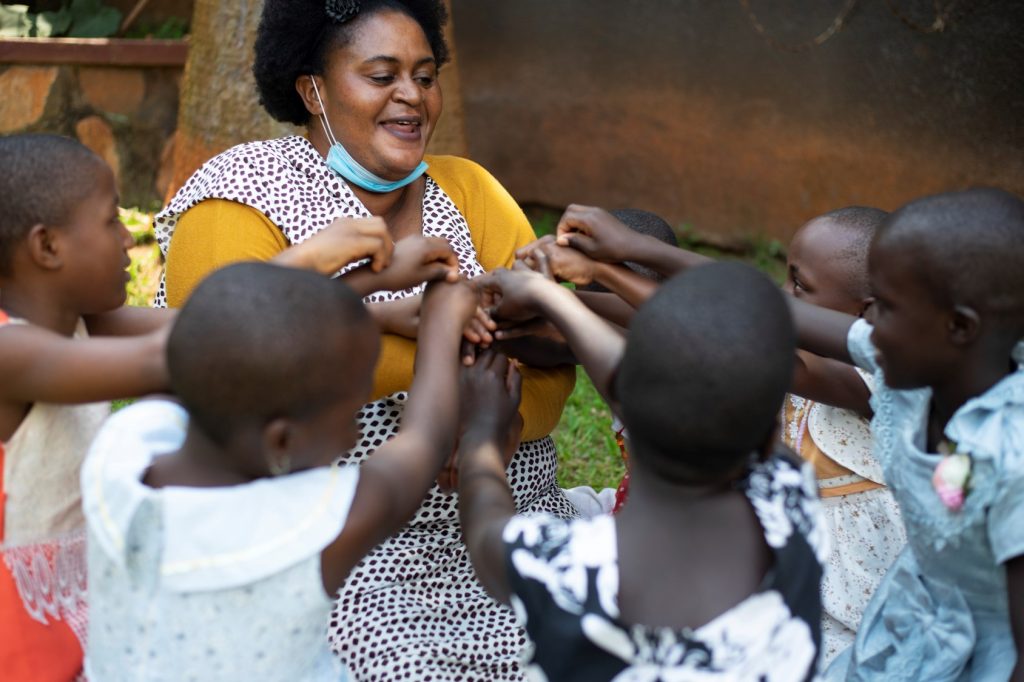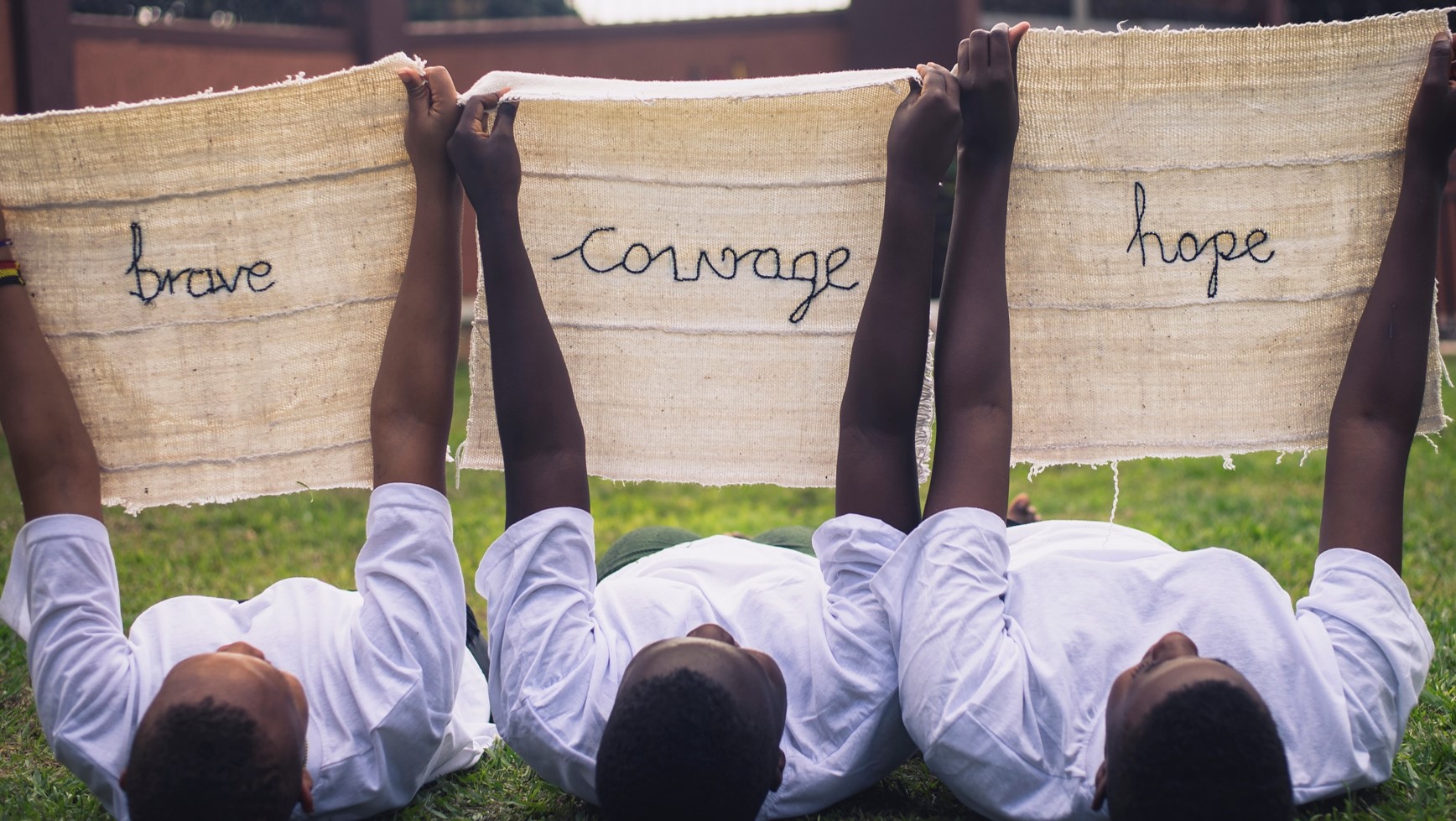
Mission
The mission of EverFree is to accelerate lasting freedom for survivors of human trafficking.
Life Challenges of the Women Served
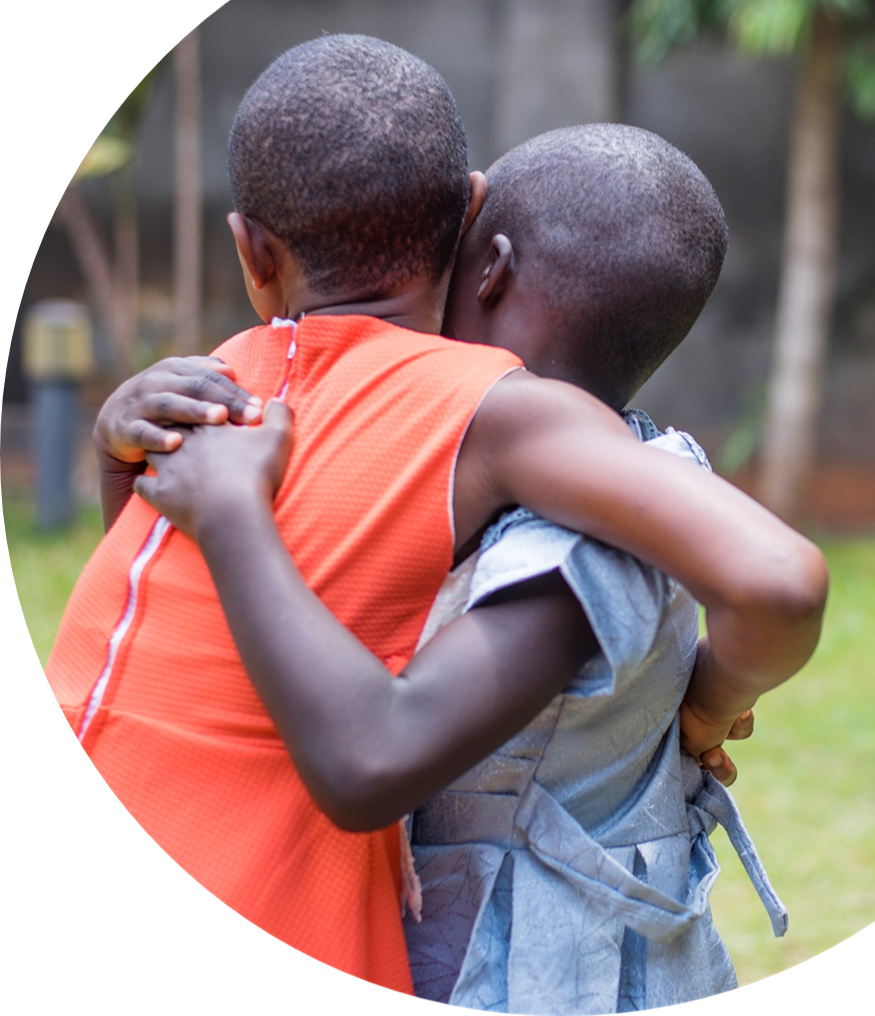 Women and girls are predominantly targeted and victimized by systems and cycles of trafficking, though men and boys are also affected and entrapped through the same forms of slavery. There are 40.3 million victims of human trafficking worldwide, with 9.2 million victims in Africa alone – which is the highest prevalence of any region globally. Only 1 percent of victims are rescued and provided with the care they need, and one in four victims is a child. Human trafficking is a $150 billion (and growing) industry – more than drug and arms dealing combined. Uganda is one of the global hotspots for trafficking. It is a source, transit, and destination country for trafficking with an estimated 320,000 children enslaved annually. In the Philippines, children are especially at risk for human trafficking. It is estimated that 60,000 – 100,000 children are victims of human trafficking in the Philippines. The Global Slavery Index indicates that there an estimated 784,000 people living in modern slavery in that country alone.
Women and girls are predominantly targeted and victimized by systems and cycles of trafficking, though men and boys are also affected and entrapped through the same forms of slavery. There are 40.3 million victims of human trafficking worldwide, with 9.2 million victims in Africa alone – which is the highest prevalence of any region globally. Only 1 percent of victims are rescued and provided with the care they need, and one in four victims is a child. Human trafficking is a $150 billion (and growing) industry – more than drug and arms dealing combined. Uganda is one of the global hotspots for trafficking. It is a source, transit, and destination country for trafficking with an estimated 320,000 children enslaved annually. In the Philippines, children are especially at risk for human trafficking. It is estimated that 60,000 – 100,000 children are victims of human trafficking in the Philippines. The Global Slavery Index indicates that there an estimated 784,000 people living in modern slavery in that country alone.
Human trafficking is unambiguously immoral and universally illegal, but it is also extremely profitable for those engaging in it. Meanwhile, the enormous costs of helping people who have been exploited and traumatized (legal services, medical care, job training, psychosocial support, mental health services) are borne by local communities, government programs, and nonprofit aftercare providers. In other words, the goods and services linked to slavery are only profitable to a few, and years or decades of aftercare services for survivors are an expensive imperative for policymakers.
Since before its independence and up to the present day, Uganda has faced significant political conflict and unrest. Uganda has been notorious for military dictatorships, human rights abuses, and corruption. With one of the largest youth populations in the world by proportion, prospects for gainful employment are limited for those under 30. Combined with high rates of poverty and low household incomes country-wide, trafficking has skyrocketed in the country as vulnerable individuals and/or their families seek and agree to what seem to be promising opportunities by the local trafficker or foreign employer, despite many risky unknowns.
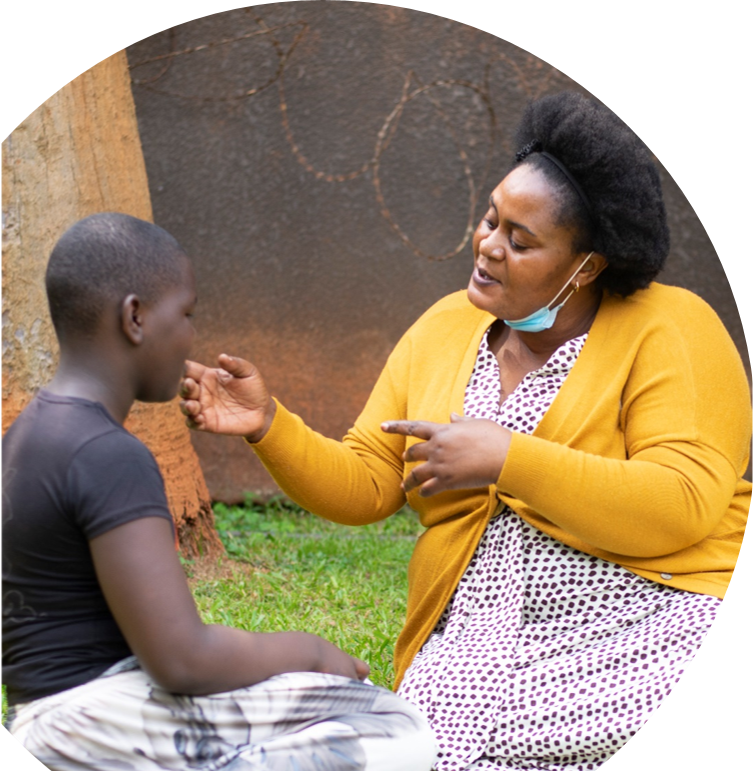 The Philippines is also a source country for trafficking, mainly owing to growing poverty, youth unemployment, gender inequality, discrimination and a culture of violence against women and girls. The situation is further exacerbated by armed conflict, clan feuding, and natural disasters that have upended communities and increased vulnerabilities amongst marginalized communities. Law enforcement information indicates that the Philippines is one of the largest known sources of online sexual exploitation of children, in which traffickers sexually exploit children, individually and in groups, in live internet broadcasts in exchange for compensation wired through a money transfer agency by individuals, most often in another country.
The Philippines is also a source country for trafficking, mainly owing to growing poverty, youth unemployment, gender inequality, discrimination and a culture of violence against women and girls. The situation is further exacerbated by armed conflict, clan feuding, and natural disasters that have upended communities and increased vulnerabilities amongst marginalized communities. Law enforcement information indicates that the Philippines is one of the largest known sources of online sexual exploitation of children, in which traffickers sexually exploit children, individually and in groups, in live internet broadcasts in exchange for compensation wired through a money transfer agency by individuals, most often in another country.
The Ugandan government does not currently meet the minimum standards for the elimination of trafficking as set by the U.S. State Department’s Office to Monitor and Combat Trafficking in Persons, though it is making significant efforts to do so. While the Government of the Philippines officially met those minimum standards, it did not vigorously investigate and prosecute officials allegedly involved in trafficking crimes, consistently criminally prosecute fraudulent recruiters and other labor traffickers, or increase support for specialized protection and assistance services for child victims of cyber-facilitated sex trafficking, according to the U.S State Department. Community reintegration services, trauma informed care, employment training and other facets of aftercare services also remain inadequate.
The Project
The purpose of this project is to support EverFree’s anti-trafficking programs including the delivery and participatory evaluation of trafficking survivor aftercare, prevention, and legal programming in Uganda and the Philippines.
In Uganda, this project will enhance trafficking survivors’ access to vital aftercare (residential or community-based aftercare), depending on context and needs of each survivor and economic empowerment. This project will also focus on prevention activities across communities identified as being high-risk for trafficking and re-trafficking, along with the fair prosecution of trafficking perpetrators (while building the capacity of legal practitioners, including the judiciary, across Uganda).
The project will also focus a smaller proportion of support funding towards strengthening EverFree’s programming in Cebu, Philippines. In the Philippines, the focus is on economic empowerment and the establishment of a data baseline (Project Greenlight) for the other program areas such as aftercare, advocacy, and prevention for present and future programs. This will give the Philippines’ team the opportunity to benefit from survivor-informed participatory research and build from the best practices established by EverFree in Uganda since 2015.
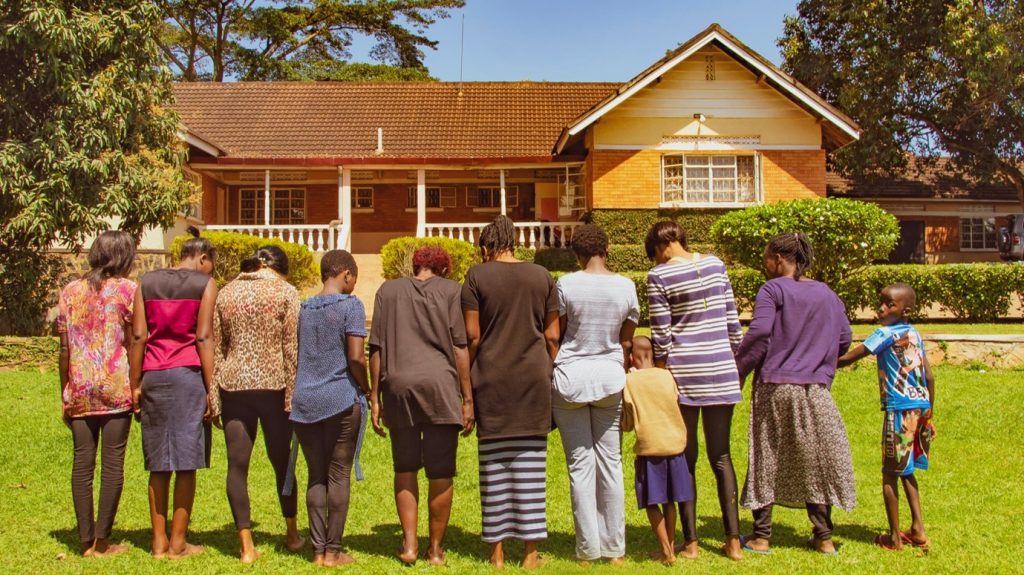
For successful reintegration of victims of human trafficking into society, existing theory emphasizes the need for aftercare programs that are sensitive to the effects of trauma on recovery and to the extreme lack of self-determination that many survivors experience during their period of victimization. Traffickers exercise physical, mental, and financial control over victims, so trauma-informed programs must provide opportunities for survivors to reclaim the right to determine their own goals, priorities, and avenues for achieving them. Therefore, it is essential to incorporate survivor voices into the case management process from the victim’s first point of contact with aftercare organizations. EverFree developed a needs assessment tool, The Freedom Greenlight, that is research-informed, strengths-based, participatory, and incorporates multidimensional aspects of wellbeing. This survey tool allows individuals to work with a case manager to determine their own priorities and avenues for pursuing them.
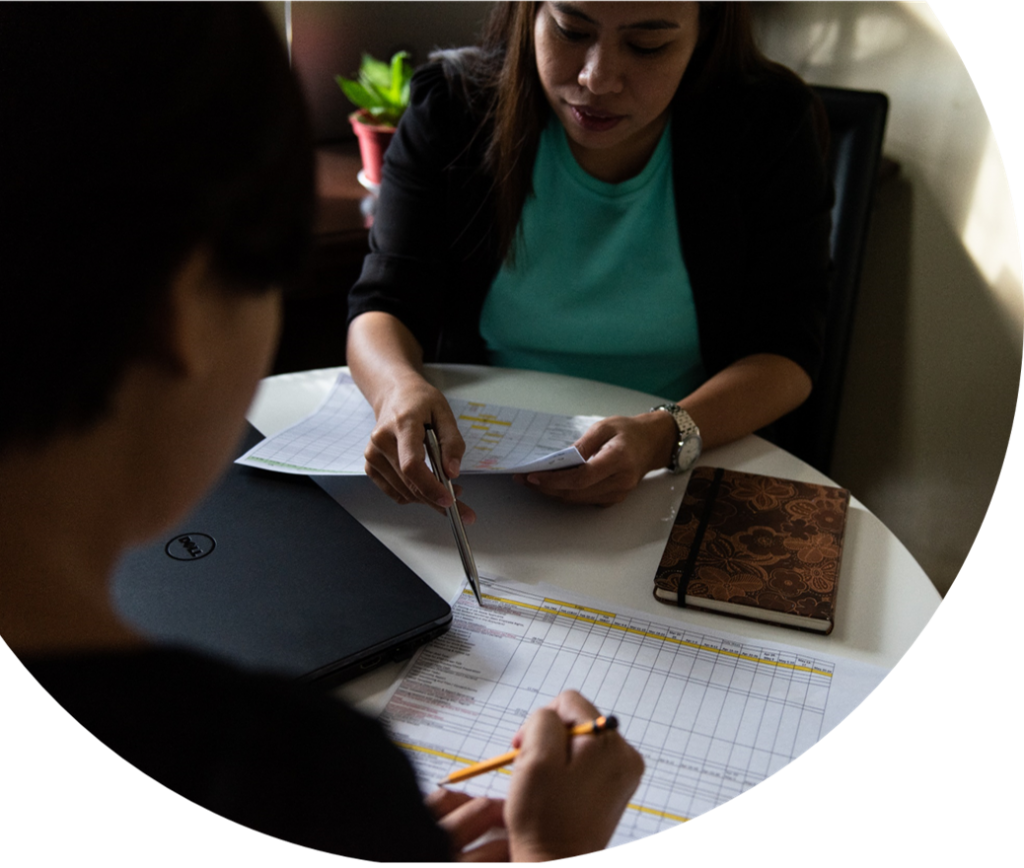 Research has shown that case management tools that include participants’ own voices encourage autonomy and makes individuals feel more competent, and this in turn predicts increased success in initiating and maintaining new behaviors that promote long-term well-being. The Freedom Greenlight will be used to assess programs by establishing crucial baselines in both Uganda and the Philippines. This tool invites survivors’ input and centers on their priorities starting at program intake and continues through needs assessment. This approach is compatible with the principles of trauma-informed care and fills an important gap in existing approaches to survivor aftercare and reintegration.
Research has shown that case management tools that include participants’ own voices encourage autonomy and makes individuals feel more competent, and this in turn predicts increased success in initiating and maintaining new behaviors that promote long-term well-being. The Freedom Greenlight will be used to assess programs by establishing crucial baselines in both Uganda and the Philippines. This tool invites survivors’ input and centers on their priorities starting at program intake and continues through needs assessment. This approach is compatible with the principles of trauma-informed care and fills an important gap in existing approaches to survivor aftercare and reintegration.
After rescue, survivors of trafficking are referred to EverFree, where they work directly with a case manager who provides an individualized plan catered to their specific needs. After an intake evaluation, case managers recommend services via EverFree’s residential aftercare homes or community-based program. Each trauma-informed service plan ensures programmatic care that addresses the beneficiary’s safety, health, education, economic independence, psychosocial, and spiritual well-being.
EverFree’s Aftercare services are provided in their three residential facilities and through community-based care. This includes individualized Case Management Services, psychosocial support, healthcare, educational/vocational training, and livelihoods support. Within this area, survivors participate in life skills trainings. Business and financial management classes and practical application are provided through technical training. Educational/Vocational scholarships are facilitated by EverFree alongside survivors to help them find an appropriate educational pathway if that is their preference.
EverFree’s Residential and Community-Based Aftercare Programs empower each survivor of trafficking to heal from trauma, be free from re-victimization, be reconciled with family/community relationships, and eventually be reintegrated back into the community or with relatives who will provide ongoing support. Survivors are given all the tools and support necessary to learn a vocation, start a business, or continue with schooling in order to re-enter society as fully engaged and empowered members.
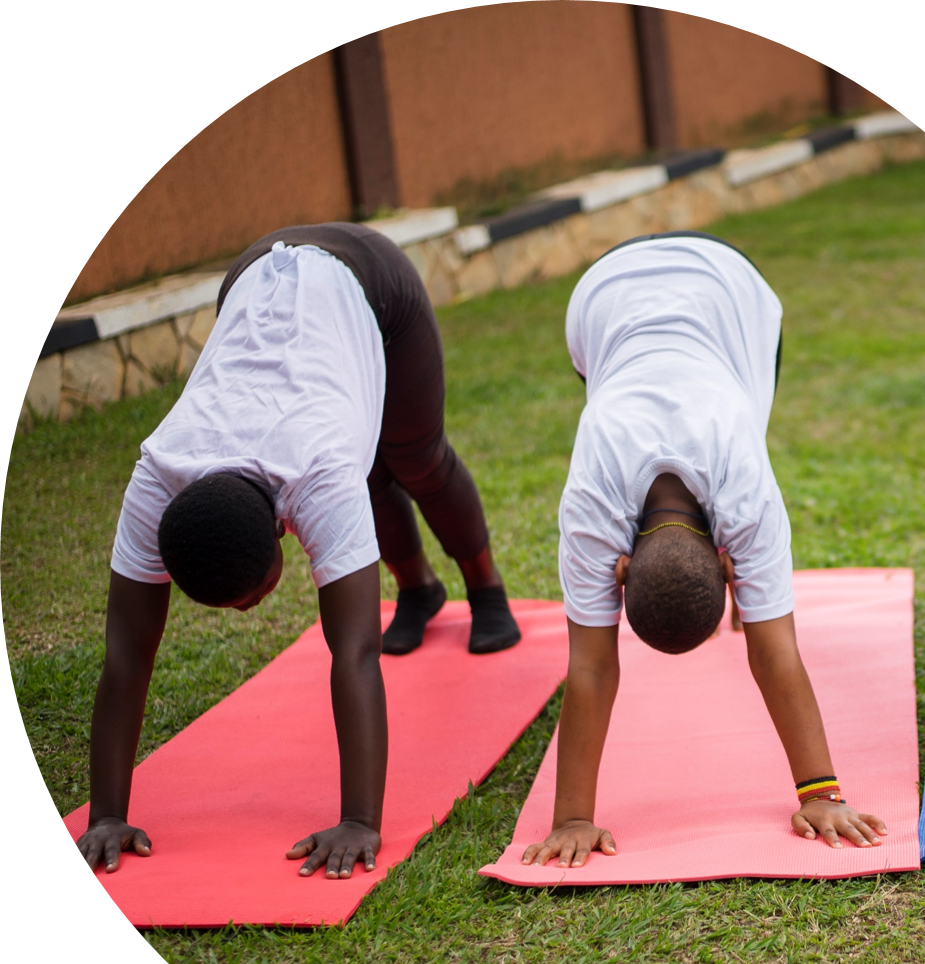 Finally, EverFree provides legal services to those who need legal aid and/or wish to pursue legal action against their trafficker. Their extensive prevention programming sensitizes both communities and the judicial system about trafficking in persons, and for those within the legal system, specific trainings and capacity building on victim-centered advocacy and taking a trauma-informed approach to prosecuting trafficking cases.
Finally, EverFree provides legal services to those who need legal aid and/or wish to pursue legal action against their trafficker. Their extensive prevention programming sensitizes both communities and the judicial system about trafficking in persons, and for those within the legal system, specific trainings and capacity building on victim-centered advocacy and taking a trauma-informed approach to prosecuting trafficking cases.
In addition, EverFree’s Uganda Trafficking Prevention Program ensures that government stakeholders, front-line organizations, and communities in Uganda are aware and equipped with tools to prevent and identify trafficking, and refer victims to services. EverFree has partnered and led prevention efforts around the nation. These efforts have primarily focused on justice sector reform, victim legal services, education and awareness, stakeholder training, and research. The outcomes of this project, which is rooted in improving access to justice by survivors of human trafficking, will improve the experiences of citizens coming into contact with the legal and judicial systems in Uganda. This project’s work to enhance the capacity of judicial bodies will improve the broader population’s encounters with Uganda’s legal systems and the democratic standards that the police and courts uphold in managing any case or legal session.
Rehabilitating and restoring the lives of survivors is critical in anti-slavery strategies and has a ripple effect in the community – ending cycles of abuse, poverty, and exploitation. Survivors who are empowered economically provide for themselves and their families and are less vulnerable to revictimization.
Direct Impact: 500; Indirect Impact: 60,000
UN Sustainable Development Goals
![]()
![]()
![]()
Questions for Discussion
- One critical aspect of this project is the availability of residential care for survivors who need it. What difference do you think that makes in treatment and in reducing the risk of re-trafficking?
- Sensitizing community members, law enforcement, lawyers, and others to the needs of trafficking survivors seems like an enormous task, especially in areas where human trafficking is rampant. Do you think training can overcome long-standing processes and procedures? Where do you expect changes to be most evident?
- EverFree has been successful in its three main focus areas: trauma-informed services for survivors, training for those who work in the justice sector, and prevention of trafficking. How do you think those pieces complement each other in changing the cycle of exploitation? Can it be replicated in other countries?
How the Grant Will be Used
Together Women Rise’s grant of $50,000 will help fund the following:
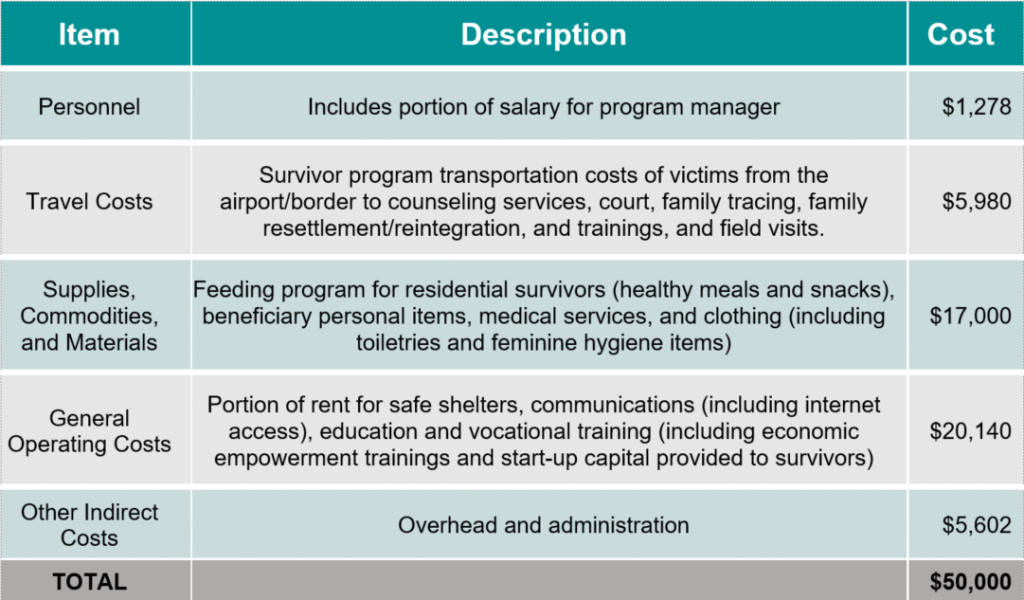
Why We Love This Project/Organization
EverFree brings more than 18 years of contextually grounded, evidence-based, and survivor-informed expertise to its work addressing and halting the pervasive cycles of exploitation and poverty that enable human trafficking to continue globally. The organization focuses on justice sector reform, legal services, education, and awareness through stakeholder training and services for survivors. The training focuses on protecting and upholding the rights of trafficking survivors, responding to cases effectively, and raising awareness of ways to prevent human trafficking.
Evidence of Success
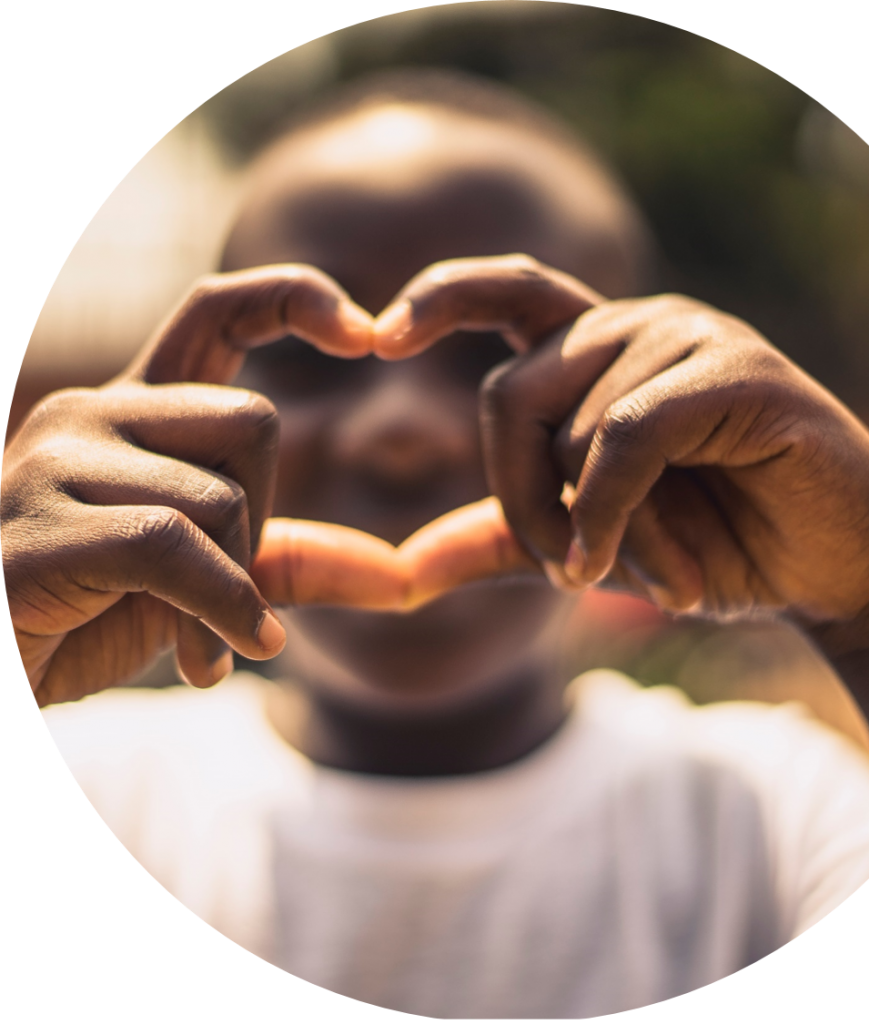 EverFree takes pride in its 95 percent success rate in preventing re-victimization and believes this is the result of individualized services and personal empowerment of survivors throughout their healing journey. Currently, EverFree has a total of 70 participants in Aftercare programs, each reporting overall improvement in their well-being (90 – 95 percent compared to baseline). At intake, most survivors are socially disconnected, physically and mentally unstable, and economically impaired. Among 2021 participants, at least 75 percent report improved social support and connection in the shelter by December 2021, 70 percent report improvements in emotional wellbeing, and 60 percent report improvements in physical health.
EverFree takes pride in its 95 percent success rate in preventing re-victimization and believes this is the result of individualized services and personal empowerment of survivors throughout their healing journey. Currently, EverFree has a total of 70 participants in Aftercare programs, each reporting overall improvement in their well-being (90 – 95 percent compared to baseline). At intake, most survivors are socially disconnected, physically and mentally unstable, and economically impaired. Among 2021 participants, at least 75 percent report improved social support and connection in the shelter by December 2021, 70 percent report improvements in emotional wellbeing, and 60 percent report improvements in physical health.
Near the completion of their time in residential Aftercare, 13 percent of these cases have been presented to court, which exceeds the standard expectation that 10 percent will reach a hearing. The results of EverFree’s community and justice sector trainings have been significant in terms of referrals to EverFree, achievement of justice, and improved treatment of survivors encountering and navigating the justice system. When surveyed about the skills and knowledge attained through EverFree’s 2021 Trafficking in Persons (TIP) training, justice sector officials mentioned improvement in their approach to survivors to avoid causing intimidation, improvement in charging (such as appropriateness and utilizing Uganda’s TIP Act), enhanced investigation techniques, improved approach to cases, educating others, objectivity in prosecution, sensitization of communities, and engaging police in most steps of the case.
Voices of the Girls
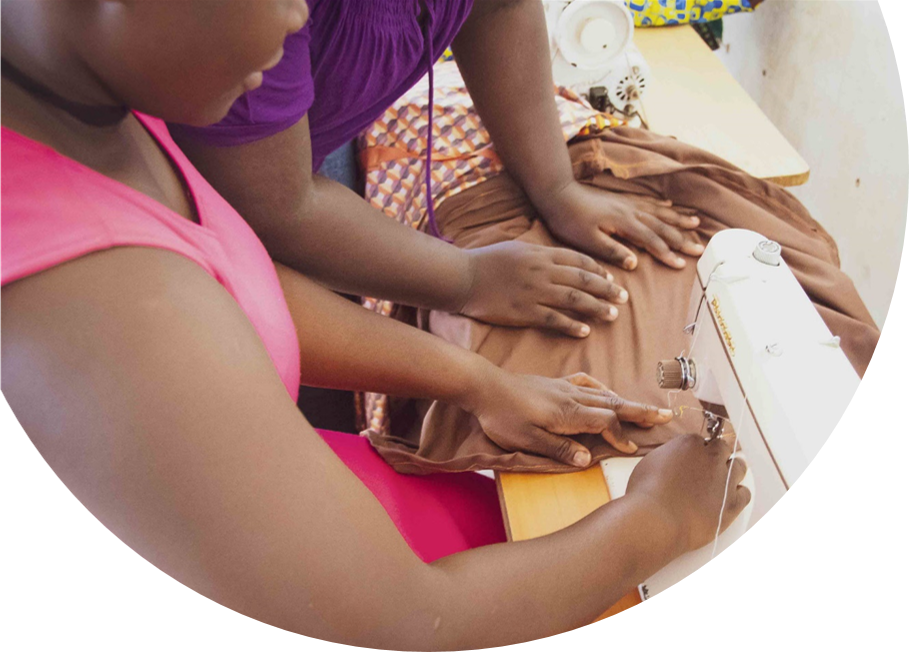 “At EverFree, I feel so safe in a warm home where people love and care for me. The aunties [a common term of endearment used to refer to staff members] welcomed me with a hug and have supported me every step of my healing journey. Even if I’m struggling one day, they always show up for me.” – survivor of human trafficking, Uganda
“At EverFree, I feel so safe in a warm home where people love and care for me. The aunties [a common term of endearment used to refer to staff members] welcomed me with a hug and have supported me every step of my healing journey. Even if I’m struggling one day, they always show up for me.” – survivor of human trafficking, Uganda
“I feel like I’m back to my dreaming again. I’ve gained my hope. I have hope for the future. I believe everything will be alright.” – survivor of human trafficking, Uganda
“I spent my entire life malnourished, being beaten, and suffering from sexual abuse. It wasn’t until I was rescued and brought to EverFree that I learned what unconditional love is. It has changed my life.” – survivor of human trafficking, Uganda
“When I first came to EverFree, I was so happy. I knew my troubles would finally be over. The house was nice and clean, and the compound was very pretty. Because of EverFree’s help, my traffickers have been arrested and I feel like a free bird.” – survivor of human trafficking, Uganda
“EverFree has empowered and supported me a lot. I was hopeless but EverFree gave me hope. I have learned many different skills and I am ready to be a job creator not a job seeker. EverFree is like a real mother when it comes to healing broken hearts. I was heartbroken in so many ways. I had not shared my painful story, but when I came to EverFree I got the courage to share my story and EverFree taught me how to overcome my pain. After graduation, I want to be exemplary in my village.” – survivor of human trafficking, Uganda
About the Organization
EverFree has recently emerged as the strategic integration of two expert anti-trafficking entities (Willow International and 10ThousandWindows) as a US based 501(c)3 nonprofit organization.
Willow International was established as a 501(c)3 in the United States in 2015 and registered as a nonprofit organization the same year. 10Thousand Windows was established in 2010 in the US and in the Philippines. The leadership of these two organizations continue as the Executive and Strategic heads of EverFree today.
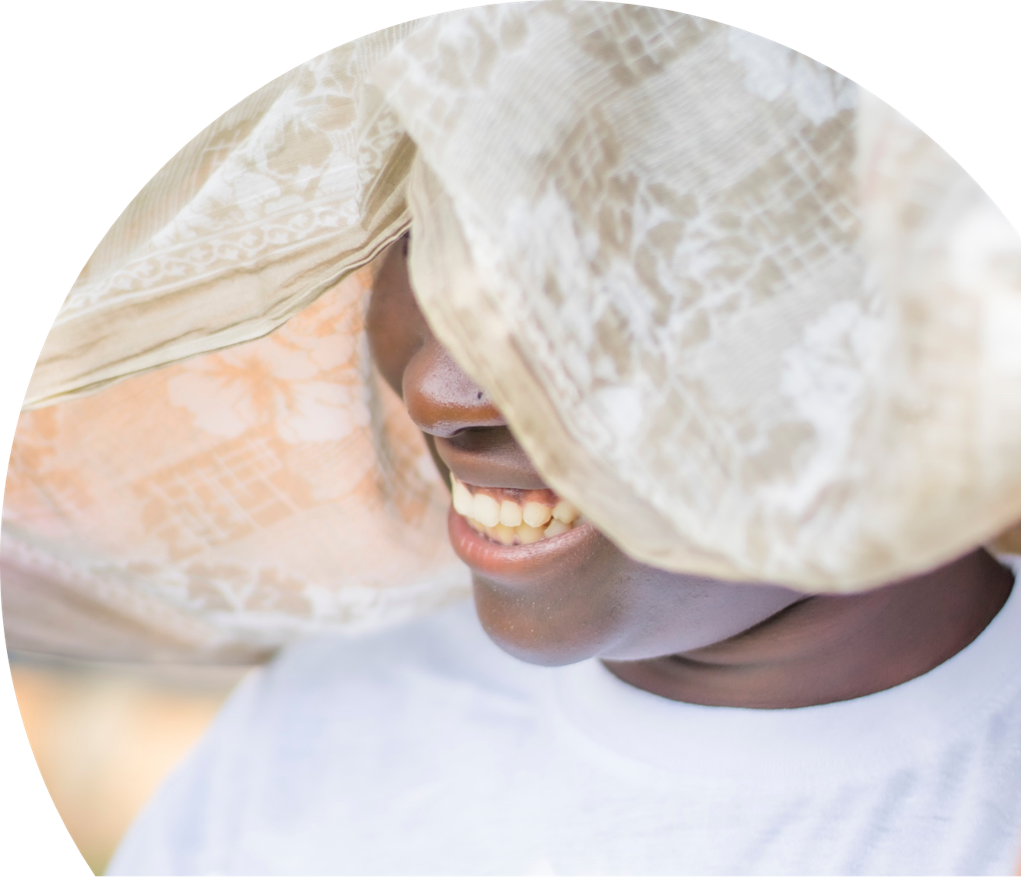 Cumulatively, EverFree brings more than 18 years of contextually-grounded, evidence-based, and survivor-informed expertise to its work to holistically address and halt the pervasive cycles of exploitation and poverty that have enabled human trafficking to continue globally. The organization focuses on justice sector reform, victim legal services, education and awareness through stakeholder training, and services for survivors. The trainings focus on policies to protect and uphold the rights of victims of trafficking, respond to cases effectively, and raise awareness of ways to prevent human trafficking.
Cumulatively, EverFree brings more than 18 years of contextually-grounded, evidence-based, and survivor-informed expertise to its work to holistically address and halt the pervasive cycles of exploitation and poverty that have enabled human trafficking to continue globally. The organization focuses on justice sector reform, victim legal services, education and awareness through stakeholder training, and services for survivors. The trainings focus on policies to protect and uphold the rights of victims of trafficking, respond to cases effectively, and raise awareness of ways to prevent human trafficking.
EverFree’s programming has a proven 92 percent success rate. It also provides holistic care and support to survivors as it builds synergies with stakeholders to engage them in awareness campaigns, coalition formation, presentations, and advocacy work. Operating in Uganda, the Philippines, and Belize, the organization brings together survivor care and rehabilitation, legal advocacy, community-based prevention, and economic empowerment to ensure that trafficking survivors have the resources they need to flourish and avoid re-trafficking.
Both Willow and 10ThousandWindows spent the previous five years before merging growing the size and capacity of their operational teams in the project localities in Uganda and the Philippines. This is reflected in the increase in their organizational and programmatic budgets. EverFree’s commitment to collaboration both locally and globally has resulted in a strong team of institutional partners and expert advisors from multiple sectors including trauma-recovery, financial accountability, monitoring and evaluation, human trafficking prosecution and investigations, universities/academia, research, and coalition-building. It has a comprehensive understanding of both the law and current trends of victimization. EverFree operates a legal aid program with a dedicated human rights lawyer and five pro bono lawyers. They are currently supporting 16 active legal cases.
Where They Work
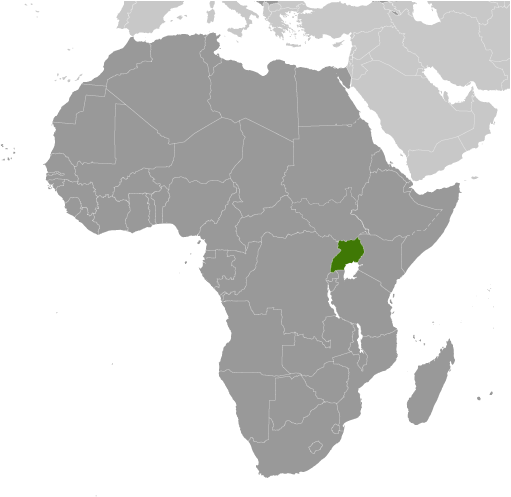
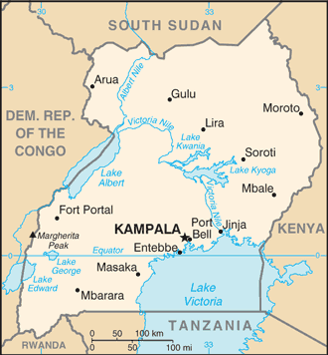
Uganda is located in East-Central Africa, west of Kenya, east of the Democratic Republic of the Congo, in an area slightly more than two times the size of Pennsylvania. The Democratic Republic of Congo, Kenya, Rwanda, South Sudan, and Tanzania border it. The population of Uganda is nearly 45 million (July 2021, est.).
Uganda has one of the youngest and most rapidly growing populations in the world. Its total fertility rate is among the world’s highest at 5.8 children per woman. Except in urban areas, actual fertility exceeds women’s desired fertility by one or two children, which is indicative of the widespread unmet need for contraception, lack of government support for family planning, and a cultural preference for large families. High numbers of births, short birth intervals, and the early age of childbearing contribute to Uganda’s high maternal mortality rate. Gender inequities also make fertility reduction difficult; women on average are less-educated, participate less in paid employment, and often have little say in decisions over childbearing and their own reproductive health.
The birth rate in Uganda is 41.6 births/1,000 population (2021 est.), and the death rate is 5.17 deaths/1,000 population (2021 est.). Mother’s mean age at first birth is 19.4 years (2017 est.). The maternal mortality rate is 375 deaths/100,000 live births (2017 est.), and the infant mortality rate is 31.49 deaths/1,000 live births. Life expectancy for the total population is 68.58 years: for men it is 66.34 years, and for women it is 70.9 years (2021 est.).
The male literacy rate is 82.7 precent, and the female literacy rate is 70.8 percent (2018). The percentage of the population below the poverty line is 21.4 percent (2016 est.).
A closer look at EverFree’s Model of Systems Change
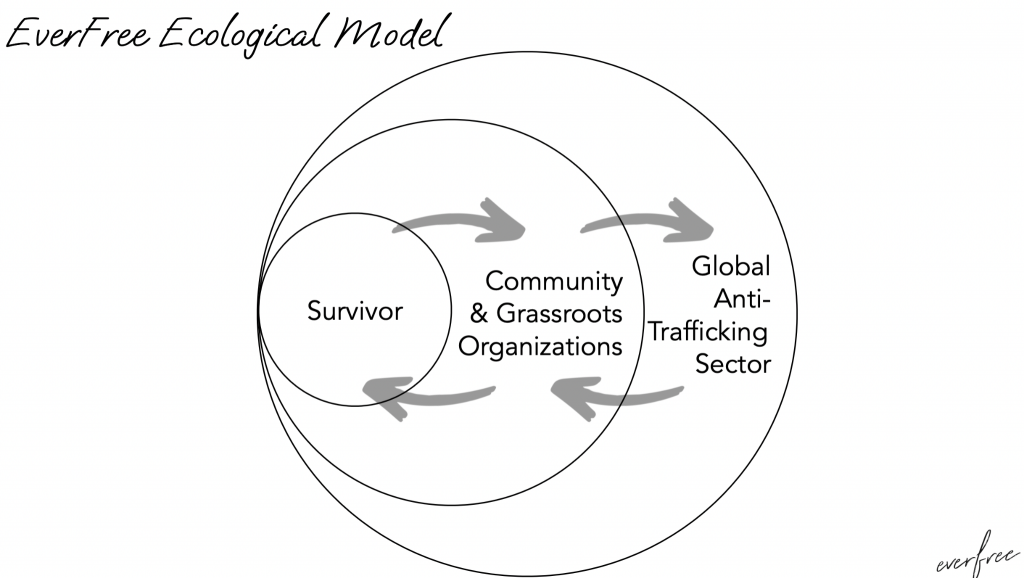 EverFree’s comprehensive model empowers survivors, communities, and the global anti-trafficking sector to stop the systems that enable trafficking to thrive.
EverFree’s comprehensive model empowers survivors, communities, and the global anti-trafficking sector to stop the systems that enable trafficking to thrive.
Empowered Survivors
EverFree’s aftercare programs support survivors with the care, support, and opportunities they need to heal from exploitation, walk into a life of dignity, and attain lasting freedom. The organization’s commitment to quality, empowering, holistic care has resulted in a 95 percent success rate in preventing victimization.
Aftercare includes health and well-being (safe shelter with supportive, caring staff; long-term mental, emotional, and physical health support tailored for each survivor; comprehensive long-term aftercare and community-based care; and follow-up and empowered community reintegration). Survivors are also prepared to support themselves and their dependents with dignity through education support/scholarships, career counseling, job training and placement, and entrepreneurial support and business start-up kits.
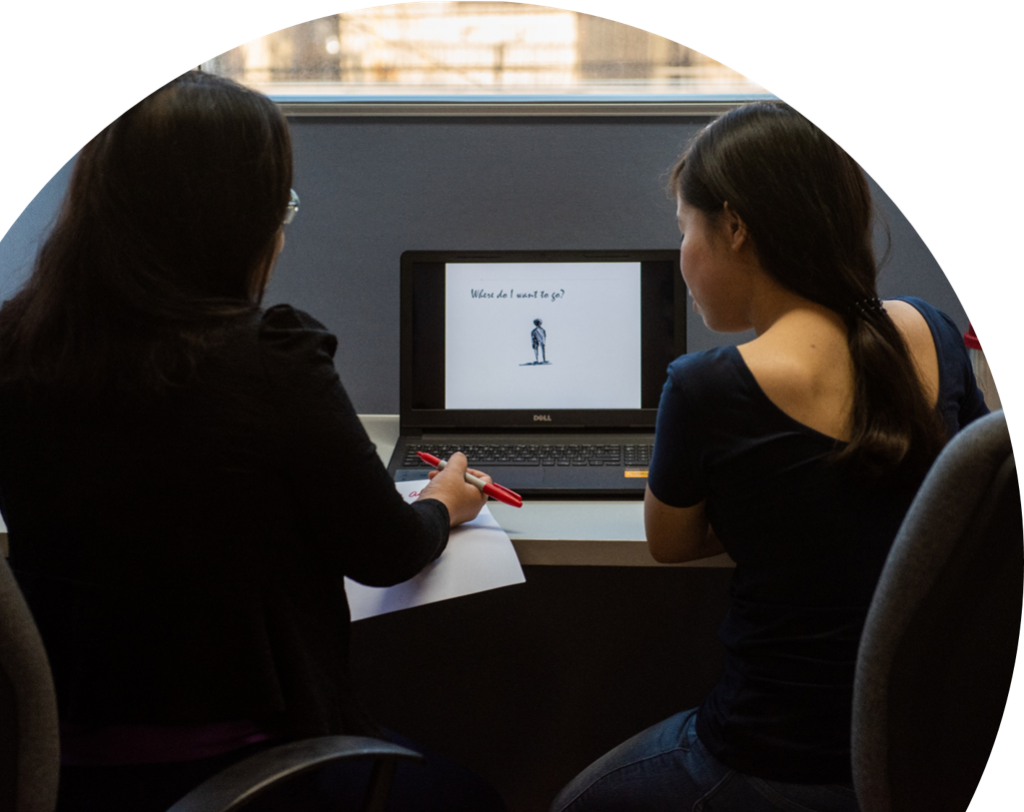 Connection and Belonging: EverFree facilitates meaningful social connections for survivors that will support them for the long term through listening to survivor voices and encouraging survivor leadership; facilitating peer-to-peer mentorship and support; family counseling and family reunification; support groups, therapy, and counseling; and community awareness and training.
Connection and Belonging: EverFree facilitates meaningful social connections for survivors that will support them for the long term through listening to survivor voices and encouraging survivor leadership; facilitating peer-to-peer mentorship and support; family counseling and family reunification; support groups, therapy, and counseling; and community awareness and training.
Empowered Community
EverFree works to accelerate the end of human trafficking by equipping communities to break cycles of exploitation. As a result, Uganda has seen an increase in the number of victims identified, the number of arrests made, and the number of convictions year over year. Justice Sector actors report having a better understanding of what to look for, how to investigate and prosecute cases, and how to support survivors with trauma-informed care.
Empowered Global Movement
The knowledge and experience of EverFree is used to catalyze systemic change, bringing research and learning to develop best practices and change laws, policies, and strategies. EverFree partners with research institutions, legal clinics, and networks including UC Irvine, Pepperdine Law School, The Global Learning Collaborative, and the University of Southern California to drive innovation and best practices through research and evaluation of program outcomes, deploy best practices to frontline practitioners, and equip activists and funders with data and evidence to influence policy and make funding decisions.
Source Materials
https://www.cia.gov/the-world-factbook/countries/uganda
